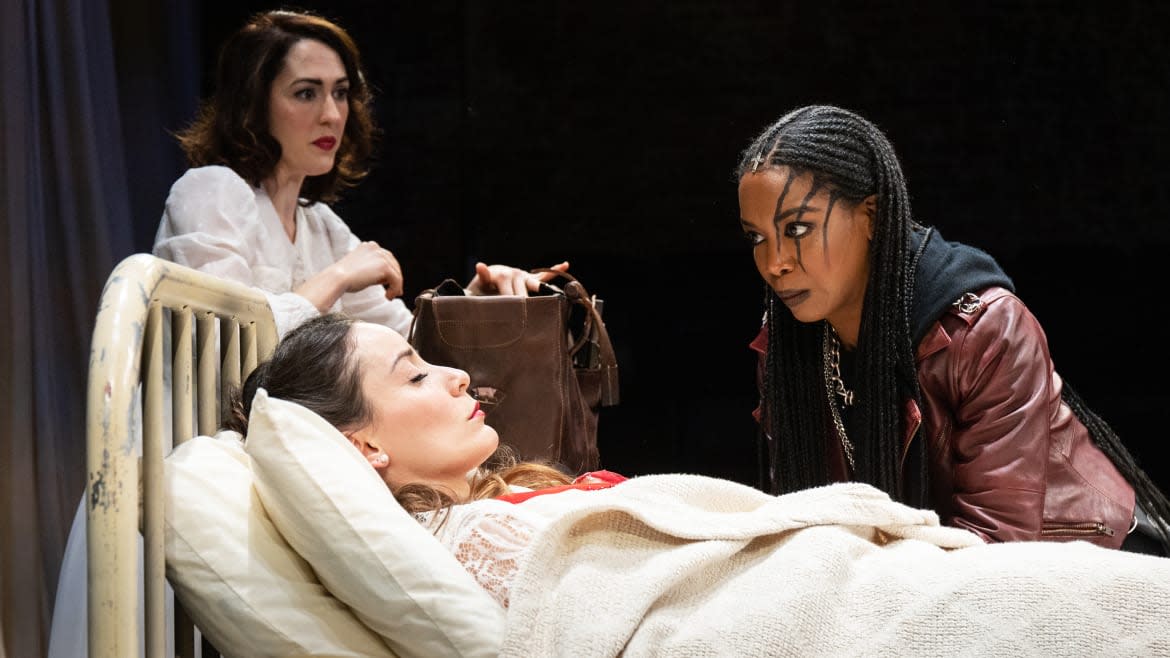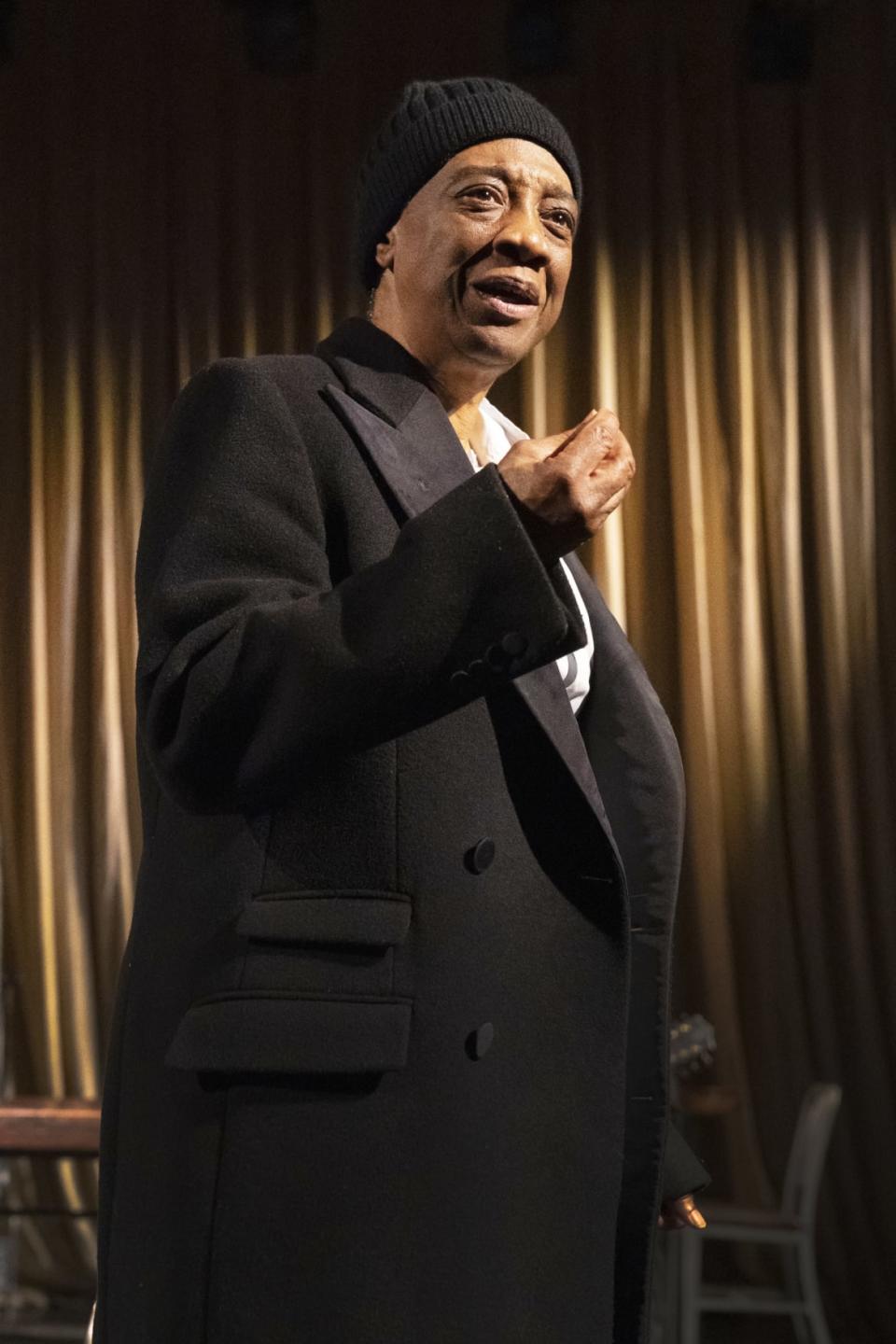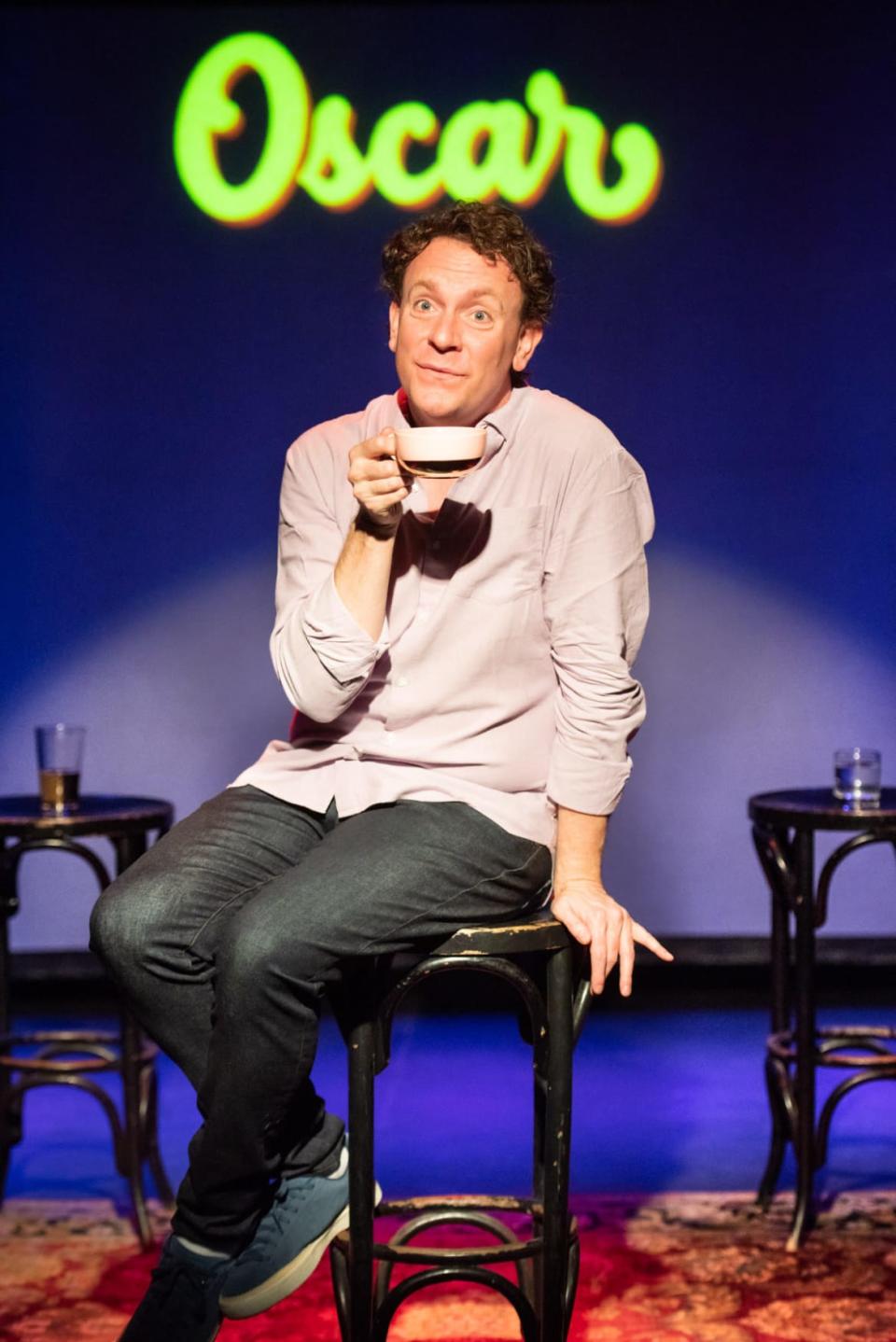‘Dracula’ and ‘Frankenstein’ Team Up in NYC—With Mixed Results, and ‘Happy Birthday Doug’ Tells Gay Truths

“Dracula” and “Frankenstein”
How to make Dracula both very funny and also politically serious and emotionally piercing? Kate Hamill has figured that dramatic knot out brilliantly in her reimagined Dracula for the #MeToo era, directed by Sarna Lapine (playing alongside Frankenstein—nice idea—at CSC to March 8). In Hamill’s retelling, set on a sparse stage with sheets, atmospheric lighting and just the odd chair, Hamill has made Dracula into a mischievous and also deadly serious feminist fable.
Here, Dracula (Matthew Amendt) is as swaggering and louche as you might imagine, and his initial quarry, Jonathan Harker (a hapless Michael Crane) callow and suggestible. Dracula wants to seduce him, and also seduce him into badness.
The Summer Storm That Inspired Frankenstein and Dracula
Standing in their way are women; first, there are the two attack-slaves Dracula has, Druscilla (Laura Baranik) and Marilla (Lori Laing). There is a re-gendered Renfield, played by Hamill herself. It is for them to throw their bodies in the way of any invading humans, and infect anyone with the vampiric poison Dracula deploys.
In Hamill’s retelling, these rogue women are bad and mad, for sure, but also Dracula’s victims and victims of something else. The nature of the vampiric poisoning Dracula wants to visit upon the world is not just monstrous in the sense of creating more scary vampires, but also in a larger sense of building and maintaining patriarchy.
Step forward Van Helsing (Jessica Frances Dukes) and Mina Harker (Kelley Curran), for in Hamill’s retelling it is they who will not only deal with Dracula, but also hope to break the cycle of patriarchal abuses that he represents. If that sounds didactic, the play is far from that, with Dukes bringing a cowboy-ish cockiness to Van Helsing, growing ever more impatient by the minute as she tries to get Mina—played by Curran with a matter-of-fact wit and jadedness—to wake up and take charge of her destiny; a battle of self-determination and female assertion that will continue long after Dracula has been dealt with.
The infection of patriarchy, this Dracula makes clear, will exist long after the obvious monster is slain. The play is as funny as it is sharp, and it is generous to its male characters too; they are part of the solution if they would simply open their minds. It is also beautifully staged and performed, right down to the sudden appearance of red jewels across crisp white shirts and blouses when blood is drawn, and the stage drenched in red light at the same moments. No dyed corn syrup here.

Stephanie Berry in 'Frankenstein'
Sadly, Frankenstein is not as fluent and inventive as Dracula. Here, two performers, Stephanie Berry (playing both Frankenstein and The Creature) and Rob Morrison, twanging a guitar and billed as “The Chorus,” distill Mary Shelley’s novel into its essentials. But the staging is so spare, and adaptation so literal, it merely comes across as a dutiful editing job.
Unlike Dracula, it does not illuminate the text in a new way; it hasn’t found anything insightful to say about it. It’s a well-performed, very good-looking abridged version of the book. Berry skillfully animates Frankenstein’s development from protean mass to a linguistically endowed being.
It’s an odd decision to make Morrison not into one of the characters, and odder still to have the guitar so in evidence with ditties that don’t illustrate the material in any fresh way. In this CSC match-up, Dracula beats Frankenstein.
“Happy Birthday Doug”
Happy Birthday Doug is one of the treats of the New York winter, and it’s happening off-Broadway; go hunt it out at SoHo Playhouse (through March 1). Drew Droege, famed for his other riotous monolog, Bright Colors and Bold Patterns, has written and performs this 60-minute play, directed by Tom DeTrinis and produced by Broadway and Ugly Betty star Michael Urie.
The stage is set out with a group of tables, each with a glass of something. The drinks belong to guests of the eponymous Doug—celebrating his 41st birthday at a wine bar in Silver Lake, Los Angeles—and the play features them regaling the unseen Doug (us in the audience) with their drunken feelings about him, the men they are attracted to, and secrets they share with Doug.

Drew Droege in 'Happy Birthday Doug'
Droege’s vivid compendium of characters begins with a guest, who is a random, rude lush—a direct echo of his character Gerry in Bright Colors and Bold Patterns. This guest, an actor, is trying to make sense of a career gone south, while leering at any man in the vicinity. Droege’s skill is to both bring a character into fizzing life, and also make clear his frailties as we are being invited to laugh at him.
The characters are pen portraits, and fast and deft ones at that. They are also painfully spot-on. In 60 minutes, we really get to know the catty actor, as well as a smug gay couple, too wrapped up in themselves to notice anything else, and a millennial waiter, too fixed on saying the right thing and not causing offense. There is also a beaky ex, there to judge and diminish, with insecurities on flickering display. And get ready for the ghost of a famous queer too, with languorous wisdom to impart.
The loveliest character—and one you could happily spend another hour with—is an older gay man, who has led quite a life, and it is his joy in that life and his analysis of Doug’s party that makes us smile while also driving home Droege’s bigger points amid the drunken bitching and hilarity.
These characters are all characters we know, or have been around, or maybe even recognize as parts of ourselves. They are all part of our big gay world, however much we would wish to disown one or more of them. Happy Birthday Doug is a very funny, pointed celebration not of the birthday kind, but of acceptance—of the self and the other.
Get our top stories in your inbox every day. Sign up now!
Daily Beast Membership: Beast Inside goes deeper on the stories that matter to you. Learn more.

